Rolling Stones - Their Satanic Majesties Request
by Richard Lewis
published: 31 / 10 / 2017
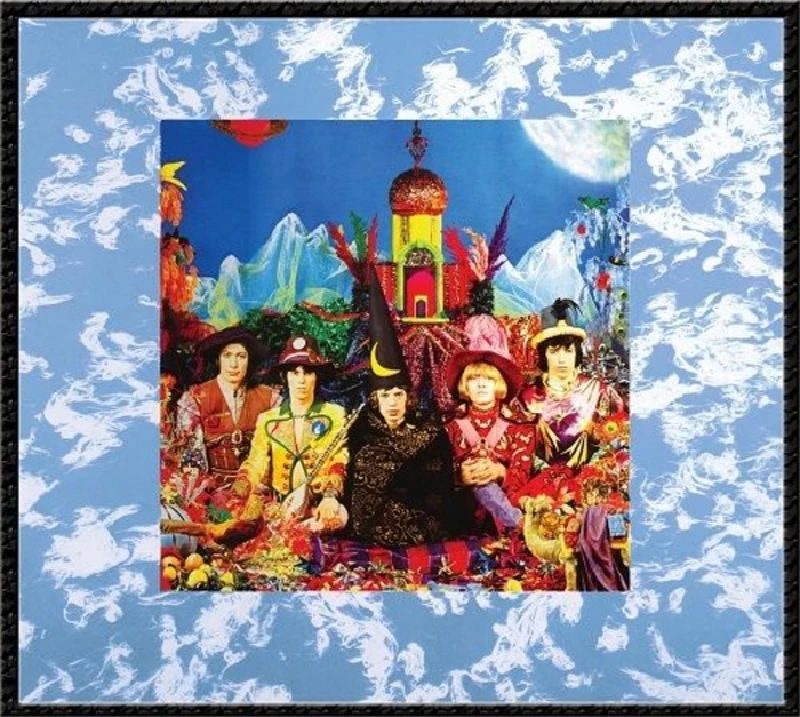
Label:
Select Label
Format: N/A
intro
The Rolling Stones’ 1967 album ‘Their Satanic Majesties Request’ saw the band moving into psychedelia and was recorded against the backdrop of the most tumultuous period in their history. Recently reissued, Richard Lewis in our Re: View section examines a LP that is a curio in the Stones’ catalogue
A band who have never had an issue with constructing live sets that are stuffed full of hit singles and stand-out album tracks, amongst the gilt-edged crowd pleasers that make up the Rolling Stones’ current live sets, several of the group’s early albums are overlooked entirely. While the nature of the record industry in the 1960s was to keep albums and singles almost entirely separate, the likes of ‘Out of Our Heads’ (1965), ‘Between the Buttons’ (1967) and ‘Their Satanic Majesties Request’ (1967) are skipped over completely. While ‘…Buttons’ is an intriguing if undistinguished entry in the group’s glittering album discography, ‘Their Satanic Majesties’, released in December 1967, had become something of a bête noire for the Stones personally, summing up a year that was the band’s most difficult to date. Encompassing drug busts for Mick Jagger, Keith Richards and Brian Jones, parting ways with their manager Andrew Loog Oldham, virtually no live shows, a changing musical climate and inter-band strife, the year saw the band in turmoil. With the band’s 1960’s catalogue controlled by ABKCO, the company established by the band’s late former manager, the hugely controversial Allen Klein, proof of how lowly the band rate the disc is the band’s complete silence on the current reissue for its fiftieth anniversary. While earlier Stones’ albums have been remastered, and released with band approval and accompanying interviews, despite the predictably opulent packing and audiophile trainspotter mono and stereo mixes to compare, there are no additional tracks, alternate takes or B-sides included. A strong enough seller during its first few months on the racks, rather than being a commercial failure, the LP has unpleasant associations the band would rather not revisit. Keith Richards later said of the disc. “Half of it ended up a real patchwork. Half of it was ‘Let’s give people what we think they want.’ The other half was ‘Let’s get out of here as quickly as possible.’” Even more succinctly bassist Bill Wyman stated that the sessions were “…One of the three times we came really close to splitting up.” Setting aside the oft-repeated tales of Jagger and Richards’ drug busts, partially engineered by the now (thankfully) defunct ‘News of the World’, Brian Jones’ mental health issues and the ructions caused by his girlfriend, the late Anita Pallenberg leaving him for Keith Richards, judging the LP solely on its musical merits is difficult given how much its chaotic era informs it. The principal criticism levelled at the set, then (and now) was that it was a pale imitation of the Beatles’ all-conquering ‘Sgt. Pepper’s Lonely Heart’s Club Band’, issued just under six months earlier. This theory was given credence by John Lennon in his notoriously vitriolic interview for ‘Rolling Stone’ published in January 1971. While those close to him including Paul McCartney and George Martin were the targets of his invective, during a riff about the Stones and his former band’s relationship with one other, Lennon vented his spleen. “I would like to just list what we did and what the Stones did two months after on every fuckin’ album. Every fuckin’ thing we did, Mick does exactly the same — he imitates us. And I would like one of you fuckin’ underground people (i.e. ‘Rolling Stone’ magazine) to point it out, you know. ‘Satanic Majesties’ is ‘Pepper’, ‘We Love You’, it's the most fuckin’ bullshit, that’s ‘All You Need Is Love.’” While Lennon’s stance softened, and the various targets of his outbursts were apologised to, the former Beatle was far from being the lone voice on the Stones’ being ‘Pepper’ copyists. While many have argued that the peace and love, bells and kaftans approach was at odds with the Stones’ roots as a Chicago blues band, the album does contain a handful of tracks that suggests had the circumstances been different, the idea may have been worthwhile. Featuring the widest variety of instrumentation of any Stones album, courtesy of multi-instrumentalist Brian Jones, the LP could arguably be described as the band’s most ambitious. Its title a sly reference to Establishment antagonism that resulted in the arrest and subsequent jailing of Mick Jagger and Keith Richards for cannabis possession, following a notorious raid at Richards’ house Redlands in February 1967, the LP sees the Stones make a full-blown leap into psychedelia. Lifted from the opening lines of the declaration in UK passports ‘Her Britannic Majesties Secretary of State Requests and Requires…’, the title along with the following year’s ‘Sympathy for the Devil’ and various rumours of occult dabblings, gave the band the (not entirely unwanted) outlaw cache of somehow being emissaries of Old Nick himself. This connection led to underground filmmaker and occultist Kenneth Anger approaching Mick Jagger to compose the soundtrack to his short film ‘Invocation of My Demon Brother’ (1969) and the lead role in ‘Lucifer Rising’ (1972), which Jagger passed on to his younger brother, Chris. In addition to Jagger and Richards’ legal angst, band founder Brian Jones was suffering an on-going nervous breakdown of varying degrees and who depending on which source is consulted was either a complete burnout or the figure that managed to enliven the flimsy material the band was working on. As in most cases, the truth seems to lie somewhere between the two. Another source of turmoil was the relationship breakdown between the band and their manager Andrew Loog Oldham, the teenage hustler who had promoted the band as the bad boy alternative to the Beatles. The relationship between Oldham and more specifically Jagger and Richards had cooled following the pair’s drug busts, with the manager effectively fleeing to America to avoid the situation and battling his own trauma through the onset of clinical depression. The sole album to have the production credited to the whole group, while Loog Oldham was in no way a producer in the traditional sense, the Stones’ website caustically stating “Accounts regarding the value of his musical input to the Stones recordings vary, from negligible to absolute zero”, his restraining influence would doubtless have benefitted the band. As rock biographer Philip Norman writes in ‘The Stones’, which despite its flaws remains the sharpest chronicle of the band’s career, “To be fair, no other recorded album ever suffered the handicap of having its three main musicians variously on trial and in prison, nor involved simultaneous internecine strife between musicians and manager.” The album, like its predecessor bears traces of the Kinks’ influence, who were at the height of their inventiveness in 1966. While Jagger and Co. have never acknowledged this, the baroque pop and music hall influences of ‘Cool, Calm, Collected’ and ‘Something Happened to Me Yesterday’ from ‘Between the Buttons’ and ‘The Show Must Go On,’ from the current album share the same atmosphere as Ray Davies’ classics such as ‘Sunny Afternoon’, ‘Dedicated Follower of Fashion’ and ‘Dandy’. These tracks along with their adoption of the Edwardian fashions that were then the cutting edge of hip in London moved the Stones towards a very English sense of style, far removed from the earthy rhythm and blues of their debut album three years earlier. Due to the insatiable thirst for Stones product in America, the group’s label Decca Records had managed to squeeze more material out of the band Stateside, meaning that while the present release was their sixth UK release, it was their eighth American LP. The first Stones LP to share the same tracklisting internationally, the set was the third release for the US market that year. Ever resourceful Decca had packaged together cuts that hadn’t appeared on American editions of ‘Aftermath’ and ‘Between the Buttons’ alongside singles, B-sides and offcuts to create ‘Flowers’, which despite its origins as a cash grab, is an extremely worthwhile collection. With the Stones a near-constant fixture in the news in the months leading up to its release, anticipation for ‘Satanic Majesties’ was huge. With advance orders in the US totalling near to $2 million (well over $14 million by 2017 standards), despite indifferent reviews, initially the set flew off the shelves. The album’s cover art, (in)famous for its transparent attempt to evoke ‘Sgt. Pepper’, saw Michael Cooper who had designed the Beatles’ cover commissioned to create a sleeve that was even more rococo and on which the sleeve saw the band depicted as psychedelic wizards bedecked in capes and robes and sat in front fantasia themed mountain backdrop. On top of the photo was a placed a multi-coloured 3D panel with the intention of creating a hallucinating, psychedelic effect but which merely ended up looking blurry. Shot at Mount Vernon in New York State, the artwork cost £15,000 (£250,000) a then-prohibitive sum for an album cover. Aside from the ubiquitous ‘Pepper’ comparisons, ‘Satanic Majesties’ seems wan stood next to other psych offerings in a year when the form was at its peak. Up against classics such as ‘Surrealistic Pillow’, the second album by San Fran psych pioneers Jefferson Airplane, ‘Forever Changes’ by Love plus the ground-breaking first two albums by the Doors, their eponymous debut and ‘Strange Days’, homegrown talent such as Pink Floyd’s stunning debut ‘The Piper at the Gates of Dawn’ and London contemporaries The Who’s quirky, psych-pop ‘The Who Sell Out’ were all superior. Stones associate Keith Altham flatly rated the LP as “self-indulgent nonsense” in 2007 documentary ‘The Rolling Stones: Under Review 1967-1969’. In contrast self-appointed ‘Dean of American Rock Critics’ Robert Christgau, makes the frankly bonkers claim that comparisons with ‘Sgt. Pepper’ were “an absurdity” and the only way the album was similarity between the two discs was that it had “a really strange cover.” Where the album does succeed is in its rich instrumental tapestry, thanks almost entirely to multi-instrumentalist Brian Jones. Tackling flute, saxophone, vibraphone, electric dulcimer, harp, harmonica, organ, recorder, Jew’s harp and various brass instruments, his embellishments bring a genuinely kaleidoscopic air to several songs. Contributing Mellotron to nine out of the ten tracks, the proto-synthesizer was Jones’ go-to instrument of the period, adding colour to the band’s biggest tracks of the era including ‘She’s A Rainbow’, ‘We Love You’ and ‘2000 Light Years From Home’. While some biographers (not least Keith Richards’ in his score-settling autobiography ‘Life’) claim that Jones was already unable to function by late 1967, his clear presence on so much of the album suggests otherwise, the truth as with many things usually lying somewhere between the two. To evoke a communal, peace and love atmosphere to frame the album ‘Sing This All Together’ begins the LP in reasonable fashion, if nowhere near the curtain-raising spectacle of the title track of ‘Sgt. Pepper’. A strong case for the defence, ‘Citadel’ placed second is an absolute classic, a rough-edged combination of Richards’ brilliantly snotty guitar riff with a glockenspiel effect that ‘pings’ so loudly it cuts right through the mix. Bringing the band’s original blues incarnation together with Jones’ swirling Eastern-flavoured instrumentation, the song is a hugely overlooked deep cut gem. Bill Wyman’s sole writing contribution to the Stones’ catalogue ‘In Another Land’, is a lightweight piece whose verses sound like an attempted crib from the airy psych-pop of Pink Floyd’s much-admired ‘The Piper at the Gates of Dawn’ released in August 1967. Redeemed slightly by its chorus which has the same gutsy pop sound as ‘Between the Buttons’, the bassist is joined by Jagger and Richards on backing vocals. ‘2000 Man’ is an unwieldly collision of different tracks stitched clumsily together that sounds less like a mini-suite of songs than a collection of food scraps hastily piled together on one plate in an attempt to make something edible. The quality standard tumbles into the basement, however, with the aimless eight-minute trudge of ‘Sing This All Together (See What Happens)’, a tiresome reprise of the opening track. Losing its way after several minutes into a formless jam, the track is the literal definition of a ‘drag’ to use Sixties terminology, the only reason for its inclusion surely to push the album’s running time up. The utter tedium is dispelled by the beautiful ‘She’s A Rainbow’, easily the best-known cut from the LP, not least to its use in a succession of adverts over the years and the sole track from the album to make it onto any ‘Best Of’ compilations. A medium-sized hit across the globe, curiously it wasn’t issued as a single in the UK. Deriving its chorus hook from Love classic ‘She Comes in Colors’ issued on their ‘Da Capo’ LP the previous year, a band then virtually unknown in the UK, the Arthur Lee written track later served as strong “inspiration" to one of Madonna’s finest ever singles, ‘Beautiful Stranger’. With its delicate string arrangement scored by future Led Zeppelin bassist John Paul Jones (who would later arrange the strings for R.E.M. classic ‘Automatic For the People’ in 1992) and winsome Jagger vocal, the track made its live debut in 1997, thirty years after its release and has barely surfaced since. ‘The Lantern’, a track that certainly doesn’t have the makings of a neglected classic but could have been solid album cut given severe pruning, is passable psych-pop. The five-minute trawl of ‘Gomper’ which sees Jones contributing dulcimer and recorder and Watts supplying tabla, develops into what is presumably meant to be a trance inducing instrumental, but the unfocused playing and the unconvincing groove fail to convince. Given the rush the band were in to have the LP ready for the lucrative Christmas market, the track sounds like a studio-based jam with the intention of revisiting it later, but due to time constraints was left intact. A high point of the disc, the unsettling space rock of ‘2000 Light Years From Home’, opening with a series of clashing heavily reverbed piano chords and Richards’ guitar figure, unfurls into a genuine psychedelic voyage. Written by Jagger whilst in the cells at Brixton Prison, Stones’ biographer Philip Norman stated the track was a “non-starter according to Glyn Johns until Brian sat down and improvised its eerie electronic descant.” Bill Wyman, who didn’t have fond memories of the era, praised the cut, saying in 1989 “I always loved that track." One of the few songs from the album to make it onto a setlist, the song was a surprise addition to the band’s triumphant headline set at Glastonbury 2013, making its first appearance live since 1990. Possibly due to its origins as a studio-born composition and lack of a truly strong vocal melody, the track never quite ignites onstage. Completing the LP ‘On with the Show’ features Jagger as an Edwardian/psychedelic MC of an ‘upmarket’ strip joint, “Please pour another glass, it’s time to watch the cabaret/Your wife will never know that you're not really working late/Your hostess here is Wendy, you'll find her very friendly too" wraps the LP up in forgettable fashion. This song and several from ‘Between the Buttons’ demonstrate just how strongly the highly British influences of music hall and the Kinks had permeated the band in 1966-7, that were soon to be jettisoned forever. Frustratingly, other tracks that the band issued around this time provide evidence that the Stones’ psychedelic meanderings were worth pursuing. Slightly below-par 45 ‘We Love You’, recorded during the album sessions was pulled from the tracklisting to be a standalone single. Containing a double meaning; a message of thanks to the group’s fans during Jagger and Richards’ drugs trial and a sardonic riposte to the hypocritical establishment that had jailed them, the song possessed a genuine undercurrent of menace. Opening with the clanking sound of a jail cell door, the pounding piano riff by legendary session player Nicky Hopkins’ Moroccan-influenced Mellotron riff and treated sound effects create a tour-de-force production. As a mark of solidarity with their colleagues John Lennon and Paul McCartney feature prominently on uncredited backing vocals, particularly interesting in view of Lennon’s later pronouncements. ‘We Love You’ came backed with a video that mixed studio session footage with a clever parody of Jagger and Richards’ courtroom drama that drew comparisons with Oscar Wilde’s 1895 trial for gross indecency (the law against which had been overturned in 1967). Featuring Jagger as Wilde, Richards as the presiding judge and Marianne Faithfull as Wilde’s lover Lord Alfred Douglas, the clip was banned from 'Top of the Pops'. At the time the theory was floated the trial scenes would have caused consternation at the BBC, but hindsight suggests that the studio footage of a visibly wasted Jones who looks near-comatose was more likely to have ensured its censure. The superior flipside to the single, the child-like psych whimsy of ‘Dandelion’ would have been a boost to ‘Satanic Majesties’, with the B-side charting higher in the US than its accompanying main feature. Elsewhere, one of the most under-rated songs in the band’s 1960's output, ‘Child of the Moon’, B-side to the band’s next single ‘Jumpin’ Jack Flash’ really is the one that got away. Described by ‘Mojo’ as ostensibly a tribute to Jagger’s then paramour Marianne Faithful, they hailed the track as "…closer to pagan curse than lyric poem, a mixed-bag mojo potion invocation of a dream lover." Nailing the same spooked psychedelic vibe that ‘2000 Light Years From Home’ did so successfully, the cut would have been an ideal fit for the album. Backed with an intriguing video featuring venerated English theatre actress Eileen Atkins, the promo was shot by regular collaborator Michael Lindsay-Hogg, who went on to direct the following year’s wonderful star-packed showcase ‘Rock And Roll Circus’ which only saw the light of day in 1996. Stung by the criticism and the unusually swift drop off in sales, it was unsurprising that the Rolling Stones moved towards a variant of the toughened-up Chicago blues and rock n’ roll that had initially inspired them. ‘Jumpin’ Jack Flash’ released in May 1968 gave them their first number one single in two years and decisively opened the next chapter in their career. Preparing the ground for that year’s superlative ‘Beggar’s Banquet’ that re-routed the band’s sound towards in rawer, more rustic direction, the LP was the opening salvo in a four-album run of iconic LPs. Because the band changed paths so drastically and never explored such a rich and varied instrumental palette again, ‘Their Satanic Majesties’ stands as a genuine curio in the Stones’ back catalogue. The culmination of an era of musical experimentation, ranging from baroque pop to music hall and of course on the current LP psychedelia, from now on the band’s attention would be drawn across the Atlantic for inspiration. Not without merit, but seriously flawed, ‘Their Satanic Majesties’ signals the end of an era and the conclusion of a year that Jagger, Richards, Watts and Wyman would far rather forget.
Track Listing:-
Band Links:-
http://www.rollingstones.com/https://www.facebook.com/therollingstones/
https://twitter.com/RollingStones
Have a Listen:-
Picture Gallery:-
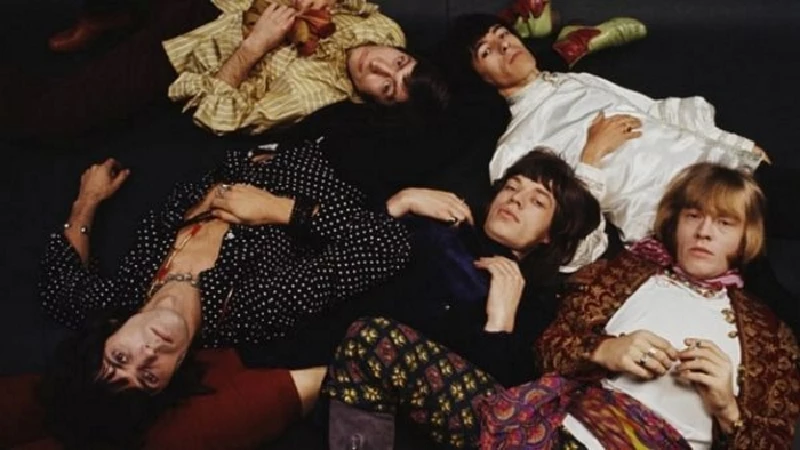
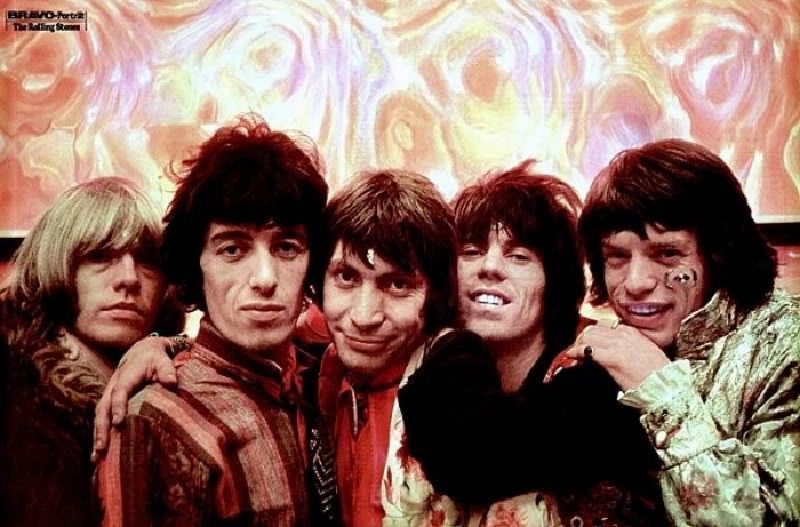
live reviews |
|
Anfield, Liverpool, 9/6/2022 |

|
| At the opening UK date of their Sixty Tour, and their first visit to Liverpool in over fifty years, The Rolling Stones’ retain their title of The World’s Greatest Rock N’ Roll Band. Richard Lewis reviews |
| Soldier Field, Chicago, 21/6/2019 |
| Hyde Park, London, 6/7/2013 |
| United Center, Chicago, 31/5/2013 |
features |
|
Raging Pages (2016) |
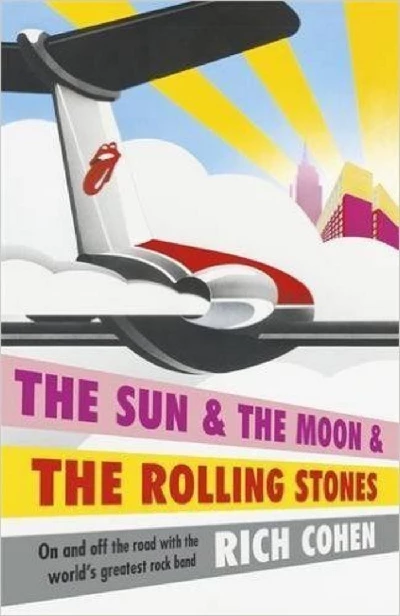
|
| In 'Raging Pages' her monthly book column, Lisa Torem is enthralled by Rich Cohen's impressive new Rolling Stones autobiography/memoir, ‘The Sun and The Moon and The Rolling Stones’ |
reviews |
|
Hackney Diamonds (2023) |
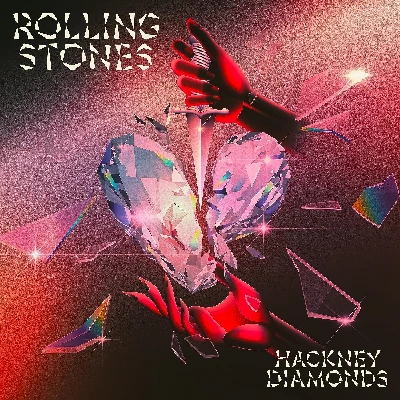
|
| Impressive and masterful album of new material in eighteen years from The Rolling Stones |
most viewed articles
current edition
Carl Ewens - David Bowie 1964 to 1982 On Track: Every Album, Every SongArmory Show - Interview with Richard Jobson
John McKay - Interview
Colin Blunstone - Thalia Hall, Chicago, 16/7/2025
Bathers - Photoscapes 1
Billie Eilish - O2 Arena, London, 10/7/2025
Loft - Interview
Visor Fest - Valencia, Spain, 26/9/2025...27/9/2025
Sir Tim Rice - Interview
Robert Forster - Interview
previous editions
Heavenly - P.U.N.K. Girl EPManic Street Preachers - (Gig of a Lifetime) Millennium Stadium, Cardiff, December 1999
Beautiful South - Ten Songs That Made Me Love...
Peter Perrett - In Dreams Begin Responsibilities Interview Part One
Boomtown Rats - Ten Songs That Made Me Love....
Oasis - Oasis, Earl's Court, London, 1995
Coldplay - Wembley Arena. London, 16/8/2022
Trudie Myerscough-Harris - Interview
Pixies - Ten Songs That Made Me Love...
Prolapse - Interview
most viewed reviews
current edition
Davey Woodward - Mumbo in the JumboSick Man of Europe - The Sick Man of Europe
Lucy Spraggan - Other Sides of the Moon
Blueboy - 2
Amy Macdonald - Is This What You've Been Waiting For?
Bush - I Beat Loneliness
Suzanne Vega - Flying With Angels
Phew, Erika Kobayashi,, Dieter Moebius - Radium Girls
Alice Cooper - The Revenge of Alice Cooper
Cynthia Erivo - I Forgive You
related articles |
|
: Profile (2021 |

|
| Nick Dent-Robinson pays tribute to Rolling Stones drummer Charlie Watts who died on August 24th. |
| Goats Head Soup: Feature (2018) |
| Bill Wyman: Interview (2016) |
| Ian Mclagan: Feature (2016) |
| Ronnie Wood: Feature (2015) |
Pennyblackmusic Regular Contributors
Adrian Janes
Amanda J. Window
Andrew Twambley
Anthony Dhanendran
Benjamin Howarth
Cila Warncke
Daniel Cressey
Darren Aston
Dastardly
Dave Goodwin
Denzil Watson
Dominic B. Simpson
Eoghan Lyng
Fiona Hutchings
Harry Sherriff
Helen Tipping
Jamie Rowland
John Clarkson
Julie Cruickshank
Kimberly Bright
Lisa Torem
Maarten Schiethart